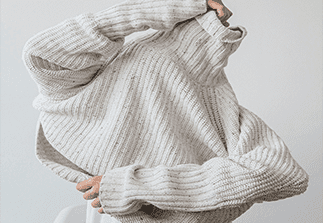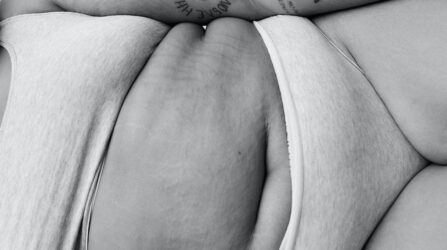Home > Emotional wellbeing > Mental health > The new “new normal”: easing post-lockdown anxiety


Things are starting to open up now around the world. If you’re based in the UK, then chances are you’ve been going out (responsibly I hope!) for a while now. But is this the new “normal”?
Maybe you’ve found that you get tired more easily with social interactions. Or maybe you’re having a harder time than before going to places with many people, or using public transport. Maybe it’s all of the above, maybe none of the above. The bottom line is, we had to get used to a “new normal” but what we’re experiencing right now is once again, different. It’s natural therefore to be feeling a little apprehensive, stressed or nervous to be doing the same activities you were before lockdown. Even if you have been vaccinated, finding yourself suddenly surrounded by loud noises and busy streets can still be jarring.
To those that have anxiety disorders: you may feel a little more sensitive to these changes, but I want you to know that this is completely natural. Read on to see our tips to ease that post-lockdown related anxiety, and maybe figure out what this new normal means to you.
Some common types of anxiety include Generalised Anxiety Disorder (also known as GAD) and Social phobia (also known as Social Anxiety). A lesser known form, known as Agoraphobia, impacts about 1.3% of individuals, though pertinent to this article. As mentioned on the NHS website, Agoraphobia is characterised by a fear of not being able to escape a place or situation. It is also considered Agoraphobia if there is an intense fear of public transport, going to crowded places, and in more severe instances, fear of leaving the home. Generalised Anxiety disorder tends to induce anxiety in more general terms, hence its name. Triggers tend to be specific to the individual who experiences the anxiety. Similarly, Social phobia is characterised by an overwhelming fear of social situations,for example, the fear of making or taking phone calls.
You can also read this article written by the Hormona team on Health anxiety.
So you can see here how anxiety can take its form in all types of situations. Perhaps you don’t fall under this umbrella but are still experiencing some level of fear, nervousness or stress. That’s still ok. Know that you aren’t alone. The entire world has been, and still is, processing a heavy trauma. It will take a while for all of us to “bounce back”.
Here are 4 self-care strategies that I have found highly beneficial include:
I feel very at peace with myself when I am by the ocean. Living in a very busy city however kind of prevents me from that option. So, sometimes, filling the bathtub with water and bath salts is the closest thing I get to that feeling. What is your safe space? And can you create a similar one in your own space? For example, if being in nature lowers that heart rate, perhaps there is a large park you can get lost in, or if you can spare the time (and energy!) a quick getaway nearby.
Do you journal? Make music? Cook? Did you take up painting or pottery during the lockdown? Why not continue those creative hobbies? It can be a wonderful outlet for when you’re in your feels, or, at the very least, a good distraction.
I know, you’ve heard this one a hundred times. But it actually works. I successfully avoided a panic attack by blasting pop songs and dancing like a maniac in my kitchen. I won’t preach that “no pain, no gain” toxicity. Move your body in a way that makes you happy; dance, walk, run, whatever. A release of happiness-inducing endorphins will help give you that calm you’re looking for. Similarly, nurturing your body with good food, vegetables, fruits, (preferred intake of) protein, and plenty of H2O. Sleep, as mentioned in many of our articles, is of utmost importance. You can find some of these here, here and here.
Breathing techniques can be used during meditation, exercise, or even as a 5-minute break. Deep breathing is a wonderful way to take a break from a stressful situation, or when you’re feeling overwhelmed. It helps oxygenate the brain, and by stabilising our breathing pattern we are better able to think clearer and calm ourselves down. A simple breathing exercise is to breathe in through the nose counting to 5, hold for 5 seconds, and exhale from the mouth for 5. There are also several apps you can download on your phone for relaxation and breathing techniques on the go.
At the end of the day, remember that you are not alone, everyone is likely feeling a little nervous about returning to a busy world. Opening up about it with a friend or someone you trust can make you feel better. It may even encourage others to open up about it too! In my experience, when you call out the elephant in the room everyone else tends to relax, knowing they aren’t alone.
Best of luck to everyone out there venturing the return to that “new normal”, and remember – take it a step at a time. There’s no reason to rush, the world isn’t going anywhere.
Disclaimer: This website does not provide medical advice
The information, including but not limited to, text, graphics, images and other material contained on this website are for informational purposes only. No material on this site is intended to be a substitute for professional medical advice, diagnosis or treatment. Always seek the advice of your physician or other qualified health care provider with any questions you may have regarding a medical condition or treatment and before undertaking a new health care regimen, and never disregard professional medical advice or delay in seeking it because of something you have read on this website.

-


Dr Singh is the Medical Director of the Indiana Sleep Center. His research and clinical practice focuses on the myriad of sleep.

What does spotting before your period look like? Spotting is a few drops of blood on your underwear that are not enough to soak a pad. It’s typically brown, light pink, or red and may only be noticeable on a

Postpartum hormonal changes: What are they? Postpartum hormonal changes occur when your body experiences shifting hormone levels after birth. After your baby is born, the doctor removes the afterbirth or placenta, which sends signals to your body that you’re no

What is ovulation fatigue? As women, we can get numerous symptoms throughout our menstrual cycles. One question we’re asked is, “Why do you get tired during ovulation?” For some, the answer could be ovulation fatigue. Ovulation fatigue is when you
Hormona© 2025, All Rights Reserved
| Cookie | Duration | Description |
|---|---|---|
| cookielawinfo-checkbox-analytics | 11 months | This cookie is set by GDPR Cookie Consent plugin. The cookie is used to store the user consent for the cookies in the category "Analytics". |
| cookielawinfo-checkbox-functional | 11 months | The cookie is set by GDPR cookie consent to record the user consent for the cookies in the category "Functional". |
| cookielawinfo-checkbox-necessary | 11 months | This cookie is set by GDPR Cookie Consent plugin. The cookies is used to store the user consent for the cookies in the category "Necessary". |
| cookielawinfo-checkbox-others | 11 months | This cookie is set by GDPR Cookie Consent plugin. The cookie is used to store the user consent for the cookies in the category "Other. |
| cookielawinfo-checkbox-performance | 11 months | This cookie is set by GDPR Cookie Consent plugin. The cookie is used to store the user consent for the cookies in the category "Performance". |
| viewed_cookie_policy | 11 months | The cookie is set by the GDPR Cookie Consent plugin and is used to store whether or not user has consented to the use of cookies. It does not store any personal data. |
